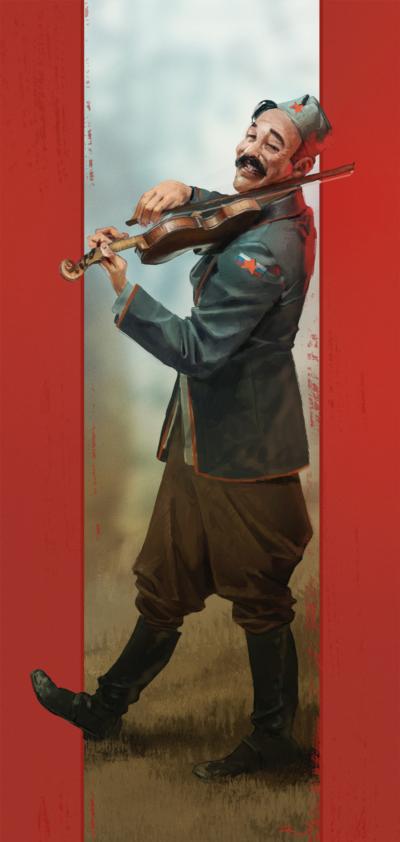The Unexpected Sounds of War

Memoir literature about the Yugoslav People’s Liberation Struggle (1941-1945) is full of references to music. It was played and sung, Rodoljub Čolaković wrote, “somewhere on a march, at a [theatrical] performance, after a battle, in a tight spot when it was difficult, […] in spite of everything.”
Revolutionaries, especially volunteers in the Spanish Civil War (1936-1939) and communists who served in prisons throughout the Kingdom of Yugoslavia in the interwar period liked to sing revolutionary songs such as Bilećanka, the Italian Bella Ciao or the adapted Russian song Po šumama i gorama. The interwar city dwellers still enjoyed Vlaho Paljetak’s chansons and Ivo Tijardović’s operettas. The most numerous in the Partisan army and the resistance movement in general was the Yugoslav peasantry, which used folkloric expression in song and dance, particularly simple rhyming couplets and circle dances (as detailed in the cycle about the Partisan cicrcle dancing in this visual archive).
Some of the songs that the Partisans listened to and enjoyed listening to did not belong to any dominant tradition and they surprised with their presence. Partisan doctor Saša Božović wrote about one such composition. Namely, in one of the hospitals she managed, veterinarian Oto worked. According to her, one of his most important activities in that hospital was based on his knowledge of playing the violin:
“Oh my god, when he started to play! The bow glides as if on silk, and the arias spill out and fill the forest with something great and noble.
(…)
Since then, [the first time he played for the hospital staff and patients] Oto’s veterinary duties have been secondary. As soon as we stop and take a break, there is Oto and the violin. I can’t forget the wonderful nights, when the wounded, taken care of after dinner, lie down in the wonderful fragrant fir forest, and Oto circles around them, walks and plays. Already half of the wounded were asleep when Oto began Toselli’s Serenata. After several evenings like this, comrades from Bosnian mountains, Montenegrin stone, remote Serbian villages ask Oto for Toselli’s Serenata. Many are not pronouncing it well, but they feel it well.”
Author of the illustration: Dario Jelušić
Enrico Toselli’s Serenata: https://www.youtube.com/watch?v=wIY_bSn8-Jw
Sources:
Božović, Saša. Tebi, moja Dolores [To You, My Dolores]. Belgrade: Četvrti jul, 1984 (1979).
Čolaković, Rodoljub. Zapisi iz oslobodilačkog rata [Records from the Liberation War]. Zagreb: Matica hrvatska, 1947.
